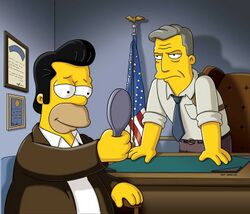Dissecting the Trump-Russia Dossier
President Trump calls it the “Fake Dirty Dossier.” We have been through every line of former MI6 agent Christopher Steele’s allegations to assess their accuracy
“The Dossier,” as everyone calls it, is talked about either as the key to what really happened in the
2016 presidential election, as likely ordered by Vladimir Putin; or it’s an artful but largely invented tapestry of libels and innuendo meant to discredit Donald Trump’s presidency. Most likely there is something in it of both. And in the shadowland of espionage it is even possible that parts of it were planted by Russian operatives to distract and discredit investigators trying to get to the bottom of the Kremlin’s skullduggery.
Every few weeks passages from The Dossier resurface like Delphic prophecies, full of promise, menace, and ambiguity. Most recently, federal investigators indicted twelve officers of Russia’s military intelligence agency, the GRU, for hacking U.S. computers associated with the Democratic Party and Hillary Clinton’s campaign, stealing documents and disseminating them with the intent of trying to sway the election. We’ve also heard former FBI director
James Comey say it is
“possible” Donald Trump paid prostitutes to urinate on the bed the Obamas had slept in at the Moscow Ritz Carlton, although Comey said he really didn’t know. And we heard from
McClatchy that Trump’s consigliere, Michael Cohen, really did travel to the Czech Republic in 2016, despite his
continued denials — but we don’t know whom he met
there.
Meanwhile, what purports to be the
full text of The Dossier is rarely scrutinized in its entirety, and even more rarely understood for what it is: a collection of raw and sometimes unreliable notes about intelligence gathered from secondary and tertiary sources and thrown together into one folder over the course of
six months in 2016. The most commonly available version, published by Buzzfeed in
January 2017, does not even present the memos in the order in which they were
written.
Paid for by Hillary Clinton’s presidential campaign and the Democratic Party, The Dossier was compiled by a highly respected former British intelligence officer,
Christopher Steele, who was subcontracted by a more dubious American research firm,
Fusion GPS. When it was published it was at first a source of prurient titillation, but more recently became the focus of ferocious contention and competing classified/unclassified memos in
Congress. It is relevant to the work of federal investigators headed by former FBI Director
Robert Mueller, who have sought to confirm or discredit every last detail, but they are pursuing many
other avenues of inquiry as well.
Skeptics looking at Steele’s memos argue that they read a lot like
a Russian disinformation campaign. Daniel Hoffman,
a former CIA station chief in Moscow, has given
three reasons to be wary of the contents of the dossier: that Steele himself never went to Russia to conduct his own investigation but relied on intermediaries of unknown trustworthiness; that Steele would have been under surveillance by the Russians, given his well-known tenure in MI6; and that the Kremlin may have known about his fact-finding efforts through the hacked DNC emails,
given that the party was Steele’s paymaster.
Other respected intelligence analysts, such as Steven Hall, the CIA’s
former station chief in Moscow and John Sipher, the former head of the Agency’s Russia
program, are more inclined to believe in the veracity of Steele’s spadework. According to British journalist Luke Harding, Steele himself has told his friends that the dossier is “70 to 90 percent accurate.”
All of which suggests that some of the material is true, some not. But which?
Our goal is to provide an annotated version of The Dossier, verifying its allegations where we can and offering context that might make unverified allegations more — or less — plausible.
One of the difficulties in reading the original document — at least
as published by Buzzfeed — is that once the memos are put in order, there are evident gaps in the sequence. For example, the first report is labeled as “080,” with no indication given as to where the original 79 antecedents might have gone. The second report is then labeled “086,” creating yet another mystery as to
81 through 85, and what content they might contain that would otherwise bolster or contextualize what came before or what follows. Moreover, Report “095” (undated by Steele) appears immediately before “094” (dated July 19, 2016) in the dossier,
which makes no sense. As with Nixon’s White House tapes, the elisions in the text become more tantalizing than the text itself.
The result is an often disorganized mishmash of snapshots; a raw intelligence dump, using anonymous Russian sources, occurring in real-time as the international media began to uncover Russia’s attempted sabotage of U.S. democracy as well as Trump’s questionable personal and professional ties to friends of the Kremlin.
So, we’ve made our notes on the reordered dossier reports according to their file numbers and attempted to fit them into the relevant narrative of what was going on as they were written. What emerges is a complex but comprehensible story of gossip, intrigue, and spycraft.
https://codastory.com/disinformation-crisis/information-war/dissecting-the-trump-russia-dossier




